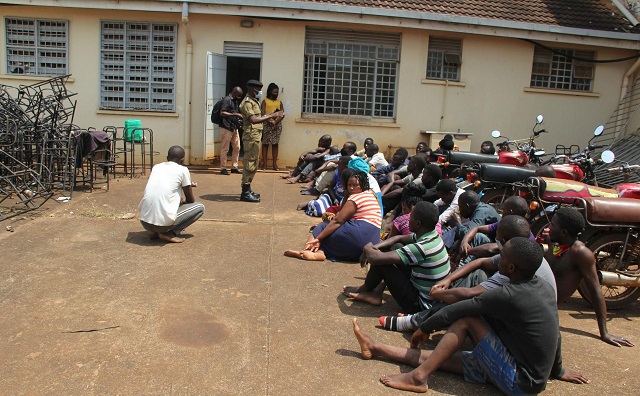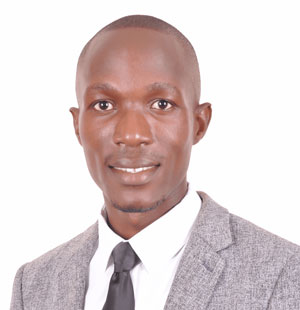
COMMENT | BENJAMIN AGABA | Curfew comes from a French word “couvre feu” which means to cover the fire.
The English adopted it and it became “curfew” meaning a regulation by which fires had to be put out at a certain fixed time mainly in the evening, marked by the ringing of an evening bell. The fires, I assume, were used for lighting purposes.
This custom is said to have been introduced in England by one of their Kings, William the Conqueror. William the 1st who was also sometimes known as ‘William the Bastard’ was one of the mightiest nobles in France as the duke of Normandy, but he is remembered for leading the Norman Conquest of England.
He was therefore the first Norman monarch of England, reigning from December 1066 to September 1087 when he died. His custom of curfew was later abolished by Henry the 1st in 1100.
Henceforth, in English simple terms (which is popularly used in Uganda), curfew is any regulation requiring people to be off the streets and in their homes by a certain time.
In Africa and in Uganda to be specific, curfews have in the past years been put during war time in order to curb the general populations’ movements during evening hours for purposes of reducing attacks from the insurgents and controling their movements too. Such an experiences however has never been faced by the majority of the current population, since the biggest majority is below 30 years.
It is only recently that the word curfew has become a household word since it was first re-introduced in March 2020 by Shwenkuru Tibuhaburwa as I call him, after several years.
Among other reasons, this curfew was meant to reduce on the spread of the Corona Virus Disease, 2019 (COVID 19) and it was put between 7.00pm and 5.30am to reduce or even stop evening social gatherings and unnecessary movements of people unless one had a serious reason like medical and other essential category of people as they were labeled.
Another reason was to curb criminality since most people were not working and it was assumed that night robberies would increase. This was however pulled upwards to 9pm following the lessening of the restrictions, and then later pulled back down to 7pm. The changes kept going on and on.
Curfew has indeed played its major role of curbing night movements and probably reducing the spread of COVID 19 but it has in some instances failed to help in criminality since night robberies have been going on and are still going on in different parts of the country. Worse still, murders have also been going on during night hours, an example being the most recent murders in the greater Masaka region.
Curfew has also had a very huge impact on the economy since it prevents night economic activities mostly businesses that work 24 hours like fuel stations, hotels and restaurants, supermarkets and other businesses.
Working in shifts for some of these businesses has also been stopped since most are either closed or have fewer clients. This has gone deeper to laying off some of the employees in such businesses.
Employees in other sectors like banking and finance, insurance, legal among others who have been working longer hours have reduced their working hours in order to avoid arrests during curfew hours. This has definitely affected their productivity and therefore reducing on their earnings too.
You can also think of another person who survives on roasting meat, plantain or fries by the roadside in the evening. Also, think of boda boda rider or taxi drivers who would have worked till late since Ugandans move almost every hour. All these individuals contribute something to our GDP in one way or the other.
Another example is of a random Trader X from Ntungamo or any other part of Uganda who usually travels using a night bus to Kampala, arrives in the morning to do his shopping, loads his goods on the bus then travel back to Ntungamo that same evening in order to save time and avoid incurring some costs like accommodation.
This is now impossible since that same trader will need about three days to do what he would have done in one day.
He will need the first day to travel to Kampala, arrive in the evening and spend on accommodation. Do his shopping the next day and still spend on accommodation. And finally travel back to Ntungamo on the third day since all this must be done during day hours.
The government has also spent excessively on enforcing the curfew rules.This is by setting up manned roadblocks and doing night patrols, which in other words are good for security reasons but should not be to stop people from moving. The security essence has sometimes failed as earlier said.
Since almost every Ugandan is aware of COVID 19 and how to prevent it, infections have also been reducing.
We should therefore think of either reducing on the curfew hours to at least mid night or even lifting away the whole curfew as soon as possible.
Since bars and music/drama concerts that are the biggest venues for night social gatherings that spread the virus are still closed, where will the people go to apart from travelling and working longer hours or remaining at their homes?
******
 Agaba is a former Mayoral Candidate, Ntungamo Municipality.
Agaba is a former Mayoral Candidate, Ntungamo Municipality.
mistabenja@gmail.com | +256706480258
 The Independent Uganda: You get the Truth we Pay the Price
The Independent Uganda: You get the Truth we Pay the Price



